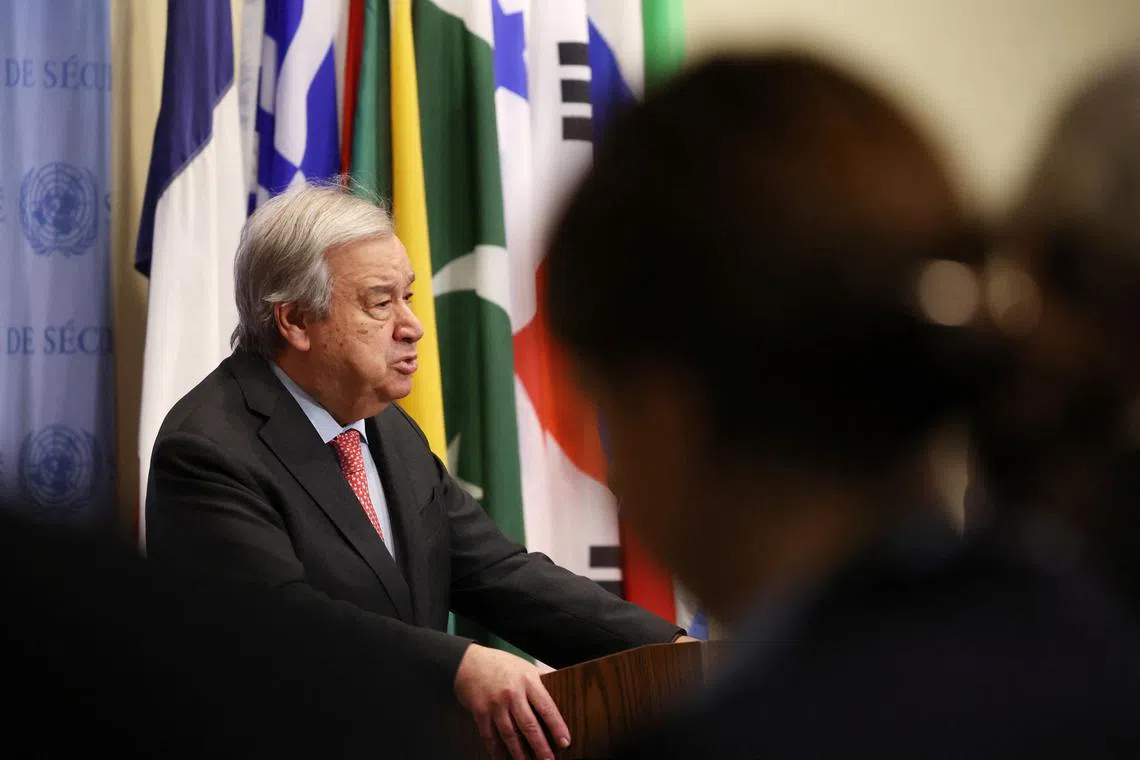TAIPEI – A Chinese influencer who had advocated the military annexation of Taiwan on social media was deported from the island on April 1, the latest of three similar cases in recent days that have sparked debate about free speech.
As she was escorted through Taoyuan International Airport for her flight to the Chinese city of Guangzhou, the influencer, who goes by her Douyin name Xiao Wei, removed her face mask and repeatedly shouted that she had “done nothing wrong”.
Xiao Wei, identified by the authorities only by her surname Zhao, is the third Chinese influencer in a week forced to leave Taiwan after posting videos online in support of China’s “reunification” with Taiwan by force. On the Douyin platform, she has some 150,000 followers.
She had failed to heed a March 31 deadline to leave the island on her own, following the government’s revocation of her residence permit 10 days earlier.
Xiao Wei had reportedly had been living on the island on a dependant’s permit for 12 years and has three children with her Taiwanese husband. She is prohibited from applying for another residence permit for five years.
“Any acts that openly advocate military aggression and the elimination of Taiwan’s sovereignty will be dealt with severely in accordance with the law, will not be tolerated, and will be enforced resolutely to safeguard national security and social stability,” Taiwan’s National Immigration Agency said in an April 1 statement.
China claims Taiwan as its territory and has not renounced the use of force to bring it under its control.
A day before Xiao Wei was deported, Chinese influencer Enqi – identified only by her surname Zhang – boarded a flight to the Chinese city of Chengdu, just hours before her departure deadline.
Similarly, Chinese influencer Yaya, whose full name is Liu Zhenya, departed Taiwan for Fuzhou on March 25, shortly before a deadline which would have otherwise led to a forced removal.

Chinese national and social media influencer Liu Zhenya (left) is escorted by Taiwanese police officers after her press conference in Taipei.PHOTO: EPA-EFE
Both influencers are also married to Taiwanese men and banned from reapplying for a residence permit for five years.
These high-profile cases have sparked widespread debate about the right to freedom of expression in democratic Taiwan, with critics accusing President Lai Ching-te’s government of violating civil liberties.
On March 26, a group of 75 Taiwanese academics and cultural figures, led by Academia Sinica medical scientist Chen Pei-jer, issued a joint statement accusing the Lai administration of making appeals to populism – including by demonising China – to shore up voter support.
“This has raised concerns about ‘political tightening’ in Taiwan and the deterioration of cross-strait relations,” Professor Huang Te-pei from Taiwan’s National Chengchi University said at a press conference releasing the statement.
In response, Taiwan’s Presidential Office spokeswoman Karen Kuo said Taiwan is a democratic society where freedom and democracy are its foundation. However, advocating aggression, hatred and violent acts against Taiwan crosses the red line of democracy and freedom of speech, she added.
Associate Professor Chen Shih-min, a political scientist at National Taiwan University, told The Straits Times that the three influencers had violated local laws as they consistently tried to incite violence and conflict in their social media videos.
In one of Yaya’s videos, for instance, she heaped praise on China’s show of might in its war games encircling Taiwan following Mr Lai’s inauguration in May 2024. “Maybe when I wake up tomorrow morning, the island will be full of five-star red flags. It makes people happy just thinking about it,” she told her 400,000 Douyin followers, referring to China’s national flag.
According to the Act Governing Relations between the People of the Taiwan Area and the Mainland Area – a legal framework for Taipei to conduct cross-strait exchanges with Beijing – a Chinese national may be deported under circumstances that include being considered threats to national or social security.
Prof Chen added that the Lai administration is taking an increasingly assertive approach to how it handles cross-strait relations amid concerns of deepening Chinese infiltration on the island.
“As people are more aware of an increase in such cases, the government also has to show that it’s taking some action,” he told ST.
According to a National Security Council report in January, the number of Taiwanese charged with spying for Beijing has seen a “significant rise” in recent years. Government data showed 64 people were charged with Chinese espionage in 2024, three times more than in 2021.
On March 13, Mr Lai warned that Beijing had recruited various members of Taiwanese society – including organised crime groups, media personalities, as well as current and former military and police officers – to “divide, destroy, and subvert us from within”.
He also formally labelled China a “foreign hostile force” and proposed 17 measures to counter threats from Beijing, including a strict review of Taiwan residency or visit applications by Chinese citizens.
In response to the cases of the Chinese influencers, Mr Chiu Chui-cheng, the head of Taiwan’s Mainland Affairs Council, said on April 1 that he respected the immigration agency’s decisions.
But he also urged the public to be more inclusive towards other immigrants in Taiwan, including those from China. There are around 360,000 Chinese spouses living on the island of some 23 million people.
“The small number of Chinese spouses who have made inappropriate remarks do not influence other new immigrants who identify with and care for Taiwan,” Mr Chiu said.
- Yip Wai Yee is The Straits Times’ Taiwan correspondent covering political, socio-cultural and economic issues from Taipei.
Join ST's Telegram channel and get the latest breaking news delivered to you.

 By The Straits Times | Created at 2025-04-02 21:55:38 | Updated at 2025-04-03 18:02:01
21 hours ago
By The Straits Times | Created at 2025-04-02 21:55:38 | Updated at 2025-04-03 18:02:01
21 hours ago







